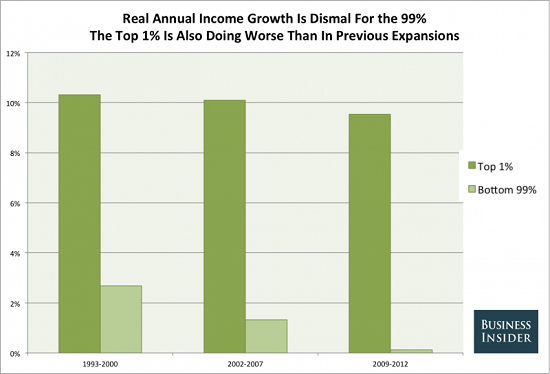
Labor Day Summary: Wage Earners Have
Taken a Beating

Let's honor Labor Day by reviewing what's happened to wage-earners in the eight years since central banks "saved the financial system" with free money for financiers: wage-earners have taken a beating and been dumped in a ditch.It's really very simple: wage-earners have seen their real earnings (as measured by purchasing power) stagnate or decline while those chosen few with access to near-zero interest borrowed capital have seen their net income and wealth explode higher.
Do the math, people: annual wage increases once real-world inflation is factored in (roughly 7% to 10% annually for those who rent, have significant healthcare expenses or buy higher education) are either negative or are measured in the hundreds of dollars--in other words, trivial increases for all but the very top echelon of wage earners.
Increases in wealth for those with central bank-supplied free money for financiers are measured in the millions of dollars. Even small-fry with capital invested in bubble markets have experienced gains in the hundreds of thousands of dollars--entire lifetimes of earned income for those earning $25,000 to $35,000 annually.
There are forces at work that are beyond the power of central banks: the technologies of automation, robotics and software are replacing human labor not just in low-skill sectors but increasingly in sectors that provided the bulk of middle class jobs.
One reason why automation is gaining ground is the soaring cost of healthcare (paid by the employers and employees in America, except for those on federally funded Medicaid). Healthcare expenses are labor overhead--employers don't pay labor overhead on robots or software.
While wage earners see their tiny raises wiped out by inflation, employers see theirtotal compensation costs skyrocketing due to employee healthcare expenses.
